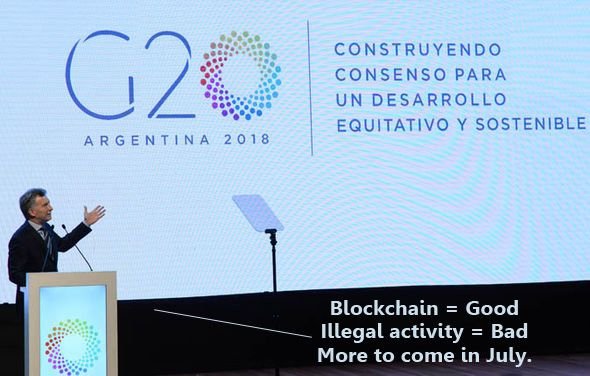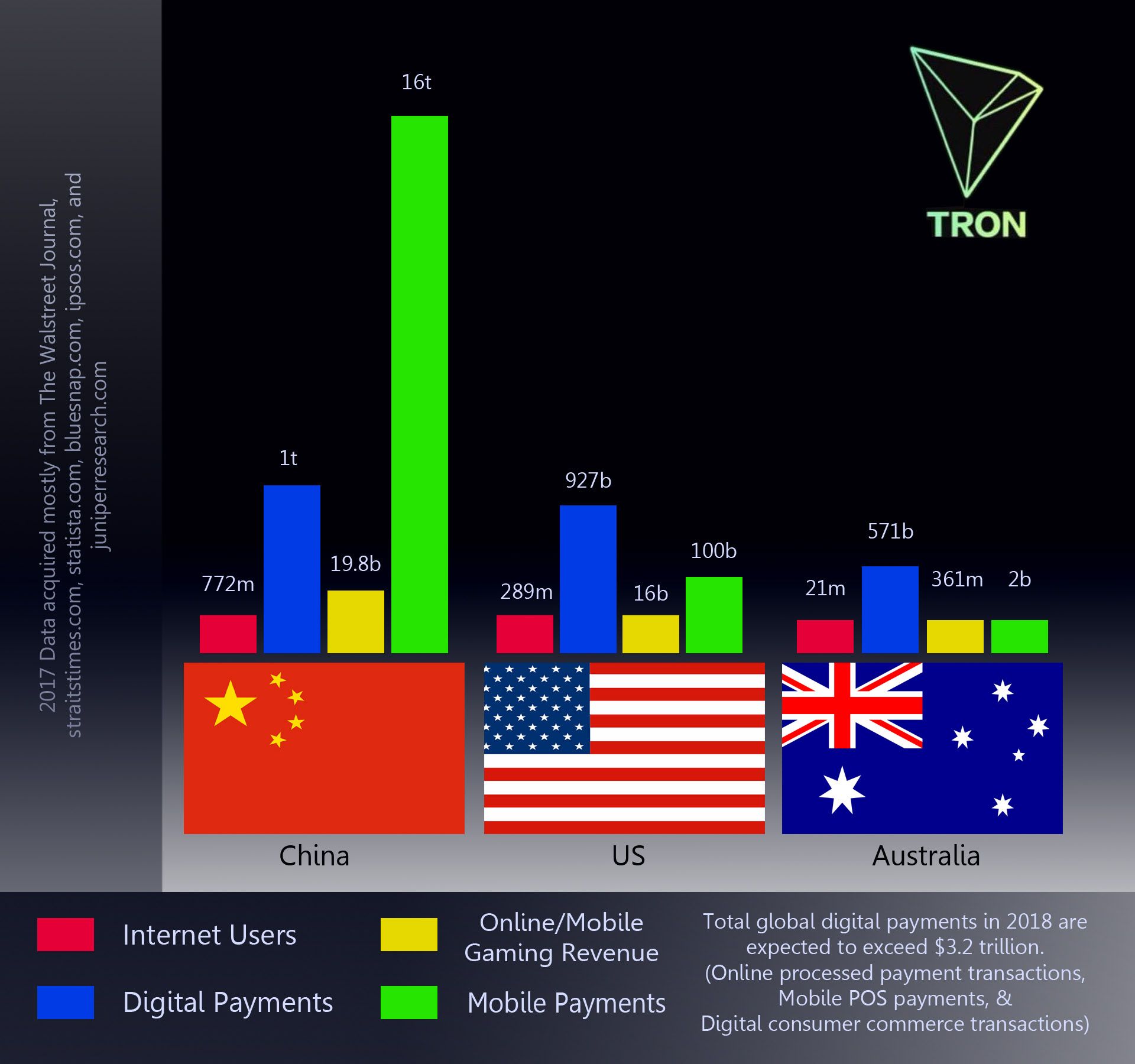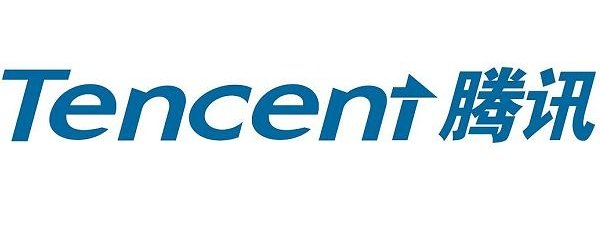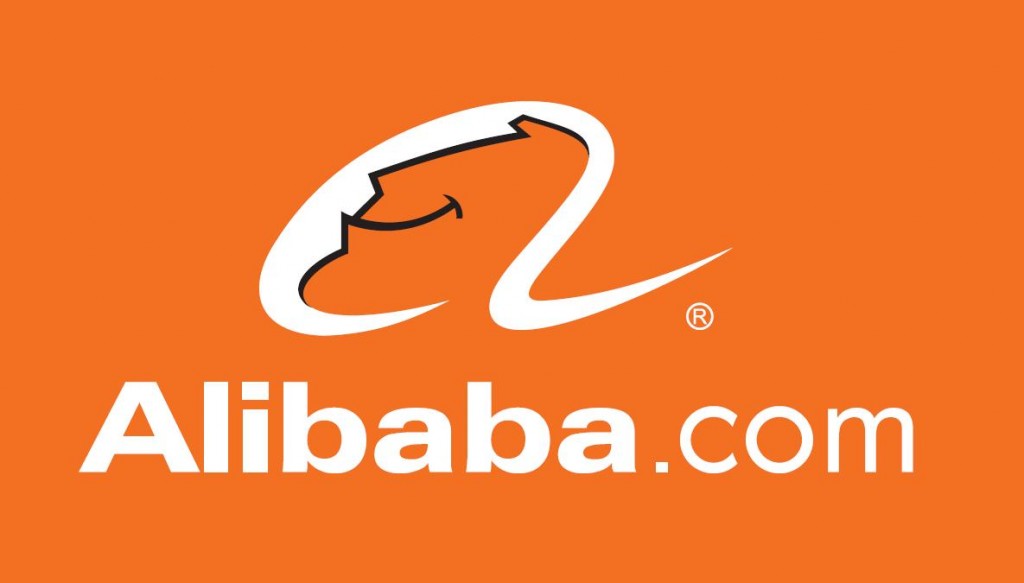Rinzler's Blog #7 Tron...The Sleeping Giant

This week saw the anticipated G20 summit in Buenos Aires take place. During the summit, a meeting of finance ministers was held where crypto and blockchain’s potential impacts on investing, illegal activities, and world financial stability were discussed, among other topics.

Overall, there seems to be a cautious and thoughtful approach toward unified global regulations on crypto by the G20 participants. Financial Stability Board Chair Mark Carney said:
“The FSB’s initial assessment is that crypto-assets do not pose risks to global financial stability at this time.”
Though a deadline of July of this year has been set as a starting point for gathering data on crypto as a whole, and will, I’m sure, lead to eventual regulatory guidelines nations can adopt if they choose, major powers like the US and others have already begun to treat cryptocurrencies as taxable property, securities, and/or utilities.
Some in the crypto community will view any proposed global governance in the area of their property as a threat to their liberty that crypto has provided, until now.
You could also see the potential upside, which is a future influx of public confidence into the market. A large portion of people who will be looking to invest this year and beyond, aren’t already invested due to absence of any serious public oversight. Some fears communicated to me from people I’ve talked to about investing range from “I have to give my bank account info to them? I don’t know.” to “It’s not backed by hard assets or governed in any way?” These are legitimate concerns for anyone who can’t afford to lose very much, but will slowly dissolve in the face of more regulatory eyes monitoring and protecting their assets.
Meanwhile, in China…
I’m sure anyone reading knows by now the potential of one such project that stands to gain immensely from public and governmental oversight & acceptance, is Tron. (On an astronomical level!)
I’ve gathered a few numbers regarding mobile payments, digital payments, video/online gaming, and internet users from 3 countries in 2017. Two of these three nations are not only Tron’s future markets, but that of the Chinese government and its plan to revitalize and transform its internet infrastructure with a number of its trading partners.

I included Australia as they entered into a strategic partnership with China in November 2017, titled, “The Information Sharing Co-operation Agreement”.
An article by opengovasia.com staff writer Dean Koh states, “The China Securities Regulatory Commission ('CSRC') and Australian Securities and Investments Commission ('ASIC') have entered into an agreement yesterday to promote innovation in financial services in their respective markets.”
It goes on to quote ASIC Chairman Greg Medcraft, saying, “Co-operation between regulators is essential to realize the benefits of the technological revolution. Understanding new developments and their impact in overseas markets helps us to remain proactive and forward-looking in our domestic approach. This Agreement represents an exciting opportunity for us to learn more about the Chinese fintech sector, which is renowned for its success and dynamism. We also look forward to sharing our insights and experiences on regtech with the CSRC.”
These steps are undeniable tools for future compounding markets that Tron will be able to expand into. Cooperation and expansion are great for any cryptocurrency, but all the numbers are dwarfed by one, gigantic ascending tower on the chart, so let’s examine it first.
Mobile Payments
I was staggered by the large amount of mobile payments in China in 2017. $16 trillion? According to a Wall Street Journal article China’s booming cashless society will grow even larger in the next few short years.
Tencent and Alibaba absorb a large portion of that $16 trillion dollar number, with Tencent being the larger of the two. For readers who are unfamiliar with either of these massive Chinese companies, here’s a brief synopsis.

Wikipedia: “Tencent Holdings Limited is the world's biggest investment corporation, one of the largest Internet and technology companies, as well as the largest and most valuable gaming and social media company in the world. Its many services include social network, music, web portals, e-commerce, mobile games, internet services, payment systems, smartphones, and multiplayer online games, which are all among the world's biggest and most successful in their respective categories.
Offerings in China include the well-known instant messenger Tencent QQ and one of the largest web portals, QQ.com. Its mobile chat service WeChat has helped bolster Tencent's continued expansion into smartphone services, and has been credited as one of the world's most powerful apps. It also owns majority of China's music services (Tencent Music Entertainment), with more than 700 million active users and 120 million paying subscribers, the world's largest and most profitable.”
Tencent’s investments in its subsidiaries are enormous, and their current and future influence in (ready for this list? Inhales deeply) e-commerce, retail, video gaming, real estate, software, virtual reality, ride-sharing, banking, financial services, fintech, consumer technology, computer technology, automobile, film production, movie ticketing, music production, space technology, natural resources, smartphones, big data, agriculture, medical services, cloud computing, social media, IT, advertising, streaming media, artificial intelligence, robotics, UAVs, food delivery, courier services, e-book, internet services, education and renewable energy – (phew) will be unmistakable. It is one of the most active investment corporations in the world, with recent focus on start-ups within Asia’s burgeoning tech scene.

Wikipedia: “Alibaba Group Holding Limited is a Chinese multinational e-commerce, retail, Internet, AI and technology conglomerate founded in 1999 that provides consumer-to-consumer, business-to-consumer and business-to-business sales services via web portals, as well as electronic payment services, shopping search engines and cloud computing services. It owns and operates a diverse array of businesses around the world in numerous sectors, and is named as one of the world's most admired companies by Fortune.”
The Alibaba name and logo are that of a genie who says “Open Sesame!” Founder Jack Ma likened the open sesame concept to opening something you, or something someone bought for you online, and also in regards to opening new doors and frontiers in internet communications and commerce.
These two companies have been researching and are now implementing blockchain tech in ways that will undoubtedly re-write current textbooks in programming and development. Tencent has started its own array of blockchain services, called "TrustSQL". The whitepaper says that some of the goals of this platform are to aid companies and the Chinese government in working together more cooperatively in future internet development. (Read Coindesk’s article here, or check out the whitepaper (untranslated) here.)
Alibaba has put blockchain to work via a few of its subsidiaries in imports, healthcare and food quality control industries.
At the fourth World Internet Conference in Wuzhen China in late 2017, Jack Ma said a third tech revolution is on the horizon, and hoped it will garner international cooperation instead of conflict.
“The first technological revolution brought about the First World War, and the second technological revolution led to the Second World War, so the third technological revolution means a third world war may be in store," Mr Ma said. "But it will not be a war where countries fight with one another, but a war to fight against disease, poverty, and climate change through our joint efforts."
Blockchain is what the decentralized, distributed internet 4.0 will be built on, and Tron is ready to establish its future existence not only the above mentioned $16 trillion (and growing) mobile payments market, but in social media, online & mobile gaming, as well as digital payments. If Tron were to obtain say just 1% of China's e-commerce market, (around $23 trillion) the price of trx wouldn’t be able to stay low, even with its total supply of 100 billion tokens.
Mobile Games
A research article by businesswire.com points out:
”There are more than 500 million gamers in China, more than the entire population of the United States, which presents a great opportunity for global game developers and publishers.”
Tron’s recent partnership with Bitguild will demonstrate blockchain innovations like item ownership, and transfer between games. Imagine using TRX to purchase a powerful item from a network store, and then have the choice to use it in multiple games within the network? A great article can be read here on the Bitguild/Tron partnership.
Video, Entertainment and Social Media
While Tencent and Alibaba look to expand China’s entertainment reach into the US, Tron is readying itself to take advantage of the future demand for decentralized entertainment ownership. China is leading the US in the way of mobile payment adoption, but are only catching up with America’s love for fresh, publicly created digital content.
Tron offers users and creators of content a platform that bypasses the conglomerate middle-men of the current video entertainment structure, of Youtube, Google, and the like, and allows creators and consumers of content to get paid, without a percentage going to the platform.

Facebook is the epitome of what Tron hopes to free users of Social Media from: A massive, centralized controlling middle-man taking his cut off the top of its user’s content & data sharing. Facebook this week embroiled itself in the Cambridge Analytica scandal where users Facebook data was shared and sold beyond what they felt they had agreed to. According to the New York Times article:
”The hashtag #DeleteFacebook appeared more than 10,000 times on Twitter within a two-hour period on Wednesday, according to the analytics service ExportTweet. On Tuesday, it was mentioned 40,398 times, according to the analytics service Digimind.”
Tron supporters have taken to twitter this week, firing off the #DeleteFacebook hashtag since the news broke.
Facebook has had its day, and has served its purpose, but I believe users of social media are tired of their data being profitable to others as well as censored, and are ready for a change.
Tron is a Sleeping Giant, with the beta version of its mainnet stirring awake on March 31st, and official mainnet going online May 31st.
Details have yet to be released on the switch from the ERC20 tokens representative of the TRX coin, to the Tronix coin itself, but will most likely be released prior to May 31st.
The Chinese e-commerce market is an unfathomable, and massive opportunity for Tron Labs and their fearless leader, Justin Sun.

HODL YOUR  !
!
Official Tron Telegram Channel
TRX Donations: 0xd63810803fb53db316b16709f22ffc5de43f5614
Follow me on Twitter!

Que buen post